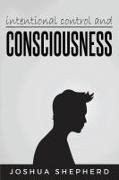Ulteriori informazioni
The power to exercise control is a crucial feature of agency. Necessarily, if S cannot exercise some degree of control over anything any state of affairs, event, process, object, or whatever - S is not an agent. If S is not an agent, S cannot act intentionally, responsibly, or rationally, nor can S possess or exercise free will. In my dissertation I reflect on the nature of control, and on the roles consciousness plays in its exercise.
I first consider the fragmented state of philosophical and empirical work on control. I argue that a mature philosophy of agency stands in need of a detailed personal-level account of control, and I begin by explicating a notion I call intentional control. On this explication, an agent J exercises intentional control in service of an intention X to the degree that behavior of J's for which X plays a (non-deviant) causal role approximates the representational content of X. With this explication in hand. I offer analyses of theoretically salient points along a degreed spectrum (covering, e.g., the exercise of minimal, successful, and perfect intentional control). Next, I develop an account of the degrees of intentional control's possession. This involves elucidation of ingredients of intentional control, ie. those features of agents and environments that constitute an agent's causal potency and skill. It turns out that an agent's possession of control regarding an intention is intimately tied to her ability to repeatedly execute that intention across some specified (hypothetical) set of scenarios. Finally, I discuss a number of potentially fruitful applications of the account.

